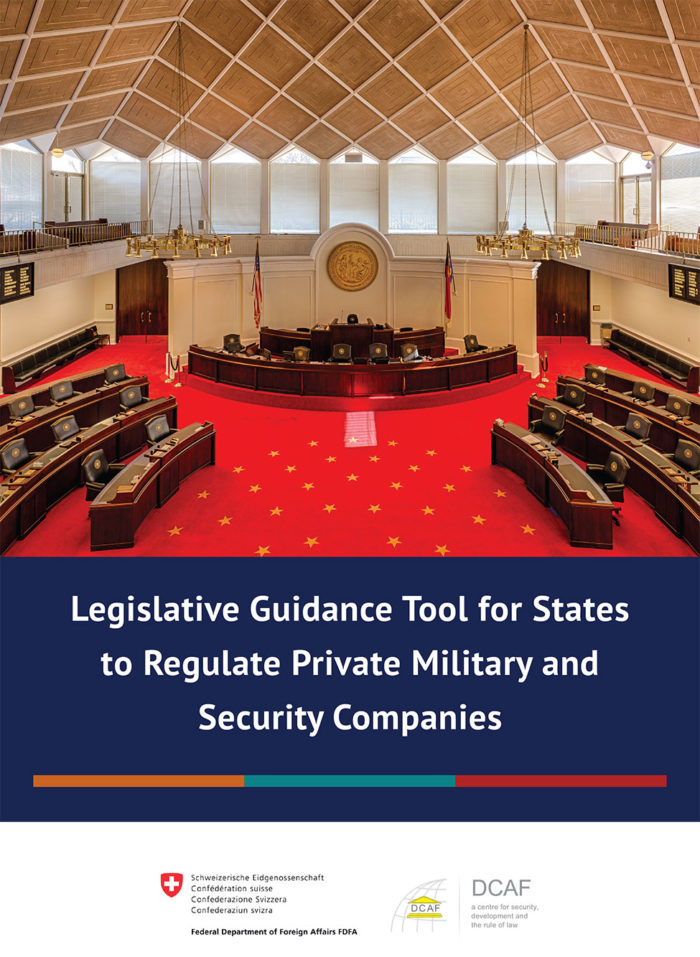Legislative Guidance Tool for States to Regulate Private Military and Security Companies
Year:
Languages available: Arabic, Azerbaijani, English, French, Romanian, Spanish, Ukranian
This Guidance Tool is comprised of 7 distinct Chapters structured around key challenges for parliamentarians and lawmakers in regulating PMSCs. It proposes recommended content that lawmakers can include into national legislative frameworks. This aims to ensure that legislation is comprehensive and reflects international good practice. These Chapters are as follows: 1. General Provisions Contained in Legislation. 2. Permitted and Prohibited Activities. 3. Authority Responsible for the PMSC Industry. 2. Authorisation, Licensing and Registration of PMSCs. 5. Vetting, Selection, and Contracting of PMSCs. 6. Obligations of PMSCs and their Personnel. 7. Accountability and Effective Remedies for Victims. In order to offer practical guidance to parliamentarians and lawmakers, this Tool gathers common challenges that can arise when States are developing legislative frameworks. These challenges are then analyzed in detail, followed by concrete recommendations and examples of good practice. The good practices are not meant to be prescriptive and it is up to the user of the Tool to evaluate whether they are feasible and appropriate to the local context and specific situation.
There are two ways to use this Tool:
1. If parliamentarians and lawmakers are considering developing new comprehensive legislation, it is advised to move chronologically throughout each Chapter in order from 1 to 7 to assist in the drafting process.
2. When updating national legislation, or when addressing specific issues, users of the Guidance Tool can look to the list of challenges, identify the specific challenges that need to be addressed, and access the relevant Chapters. See below for the complete list of challenges. This tool can also be helpful as a reference guide for companies who are looking to inform their procurement practices based on existing international obligations and using internationally recognised good practice. The living examples of national good practices presented throughout the Tool can also be helpful in raising awareness for civil society carrying out monitoring and oversight of companies’ activities, to help better understand benchmarks for ethical PMSC operations in the field.

